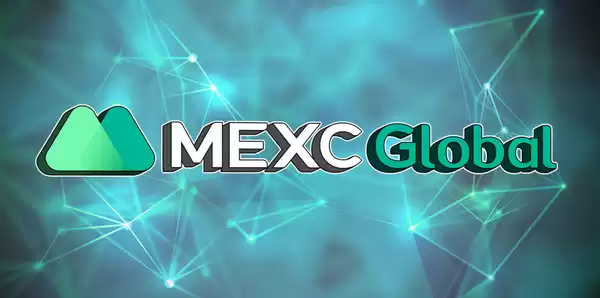-
 bitcoin
bitcoin $87959.907984 USD
1.34% -
 ethereum
ethereum $2920.497338 USD
3.04% -
 tether
tether $0.999775 USD
0.00% -
 xrp
xrp $2.237324 USD
8.12% -
 bnb
bnb $860.243768 USD
0.90% -
 solana
solana $138.089498 USD
5.43% -
 usd-coin
usd-coin $0.999807 USD
0.01% -
 tron
tron $0.272801 USD
-1.53% -
 dogecoin
dogecoin $0.150904 USD
2.96% -
 cardano
cardano $0.421635 USD
1.97% -
 hyperliquid
hyperliquid $32.152445 USD
2.23% -
 bitcoin-cash
bitcoin-cash $533.301069 USD
-1.94% -
 chainlink
chainlink $12.953417 USD
2.68% -
 unus-sed-leo
unus-sed-leo $9.535951 USD
0.73% -
 zcash
zcash $521.483386 USD
-2.87%
MEXC contract trading Explanation
MEXC allows contract trading, a powerful tool for speculators seeking to amplify returns or hedge risk without owning cryptocurrencies.
Nov 12, 2024 at 12:48 am

MEXC is a leading cryptocurrency exchange that offers a wide range of trading options, including spot trading, margin trading, and contract trading. Contract trading, also known as futures trading, allows traders to speculate on the future price of a cryptocurrency without having to own the underlying asset. This can be a powerful tool for both experienced traders and beginners looking to amplify their returns or hedge against risk.
In this article, we will provide a comprehensive guide to contract trading on MEXC. We will cover everything from the basics of futures trading to more advanced concepts such as leverage, margin, and liquidation. By the end of this article, you will have a solid understanding of how to trade contracts on MEXC and how to use this powerful tool to your advantage.
What is Contract Trading?Contract trading is a type of futures contract that allows traders to speculate on the future price of a cryptocurrency without having to own the underlying asset. This can be a powerful tool for both experienced traders and beginners looking to amplify their returns or hedge against risk.
How Does Contract Trading Work?When you trade a contract, you are essentially entering into an agreement to buy or sell a certain amount of a cryptocurrency at a specified price on a future date. The price of the contract is determined by the spot price of the underlying cryptocurrency, as well as the supply and demand for the contract itself.
What are the Benefits of Contract Trading?There are several benefits to contract trading, including:
- Leverage: Contract trading allows you to trade with leverage, which means you can borrow funds from the exchange to increase your trading position. This can amplify your returns, but it also increases your risk.
- Margin: Contract trading also allows you to trade on margin, which means you can use your existing cryptocurrency holdings as collateral to borrow additional funds from the exchange. This can give you more flexibility in terms of the size of your trading positions.
- Hedging: Contract trading can also be used to hedge against risk. For example, if you are holding a long position in a cryptocurrency, you can sell a contract to offset any potential losses.
There are also several risks associated with contract trading, including:
- Volatility: The price of cryptocurrencies can be very volatile, which can lead to significant losses.
- Leverage: As mentioned above, leverage can amplify your returns, but it also increases your risk. If the price of the cryptocurrency moves against you, you can lose more money than you originally invested.
- Liquidation: If the price of the cryptocurrency moves against you and you are unable to meet your margin requirements, your position may be liquidated. This can result in the loss of all of your invested capital.
To get started with contract trading on MEXC, you will need to open an account and deposit funds. Once you have done this, you can follow these steps to place a trade:
- Choose a trading pair. The first step is to choose the trading pair that you want to trade. MEXC offers a wide range of trading pairs, including BTC/USDT, ETH/USDT, and BNB/USDT.
- Select a contract type. Once you have chosen a trading pair, you need to select a contract type. MEXC offers two types of contracts: perpetual contracts and quarterly contracts. Perpetual contracts do not have an expiry date, while quarterly contracts expire at the end of each quarter.
- Set your leverage. Leverage allows you to borrow funds from the exchange to increase your trading position. The amount of leverage you can use will vary depending on the trading pair and the contract type.
- Place your order. Once you have set your leverage, you can place your order. You can choose to buy or sell a contract, and you can specify the price at which you want to enter the trade.
Here are a few tips to help you succeed when trading contracts on MEXC:
- Do your research. Before you start trading contracts, it is important to do your research and understand how they work. This includes understanding the risks involved and how to manage your risk effectively.
- Start small. When you first start trading contracts, it is important to start small. This will help you to get a feel for the market and will reduce your risk of losing money.
- Use stop-loss orders. Stop-loss orders can help you to limit your losses if the price of the cryptocurrency moves against you.
- Take profits. It is important to take profits when you are in a winning trade. This will help you to lock in your profits and reduce your risk of losing money.
Contract trading can be a powerful tool for both experienced traders and beginners looking to amplify their returns or hedge against risk. However, it is important to understand the risks involved and how to manage your risk effectively. By following the tips outlined in this article, you can increase your chances of success when trading contracts on MEXC.
Disclaimer:info@kdj.com
The information provided is not trading advice. kdj.com does not assume any responsibility for any investments made based on the information provided in this article. Cryptocurrencies are highly volatile and it is highly recommended that you invest with caution after thorough research!
If you believe that the content used on this website infringes your copyright, please contact us immediately (info@kdj.com) and we will delete it promptly.
- ZAMA Token's Imminent Launch: A Price Prediction and Analysis Amidst Shifting Crypto Tides
- 2026-02-02 19:00:02
- Binance's SAFU Fund Goes Bitcoin-Heavy: A Bold Move for User Protection and Bitcoin Investment
- 2026-02-02 19:00:02
- Bitcoin's Big Dip: From Peak Hopes to Present Plunge
- 2026-02-02 18:55:01
- Coin Identifier Apps, Coin Collectors, and Free Tools: A Digital Revolution in Numismatics
- 2026-02-02 18:55:01
- APEMARS ($APRZ) Presale Ignites Crypto Market with Staggering ROI Potential Amidst Broader Market Dynamics
- 2026-02-02 18:50:02
- Bitcoin’s Bear Market: Analysts Warn of Deeper Dive Amid Economic Headwinds
- 2026-02-02 18:50:02
Related knowledge

How to close a crypto contract position manually or automatically?
Feb 01,2026 at 11:19pm
Manual Position Closure Process1. Log into the trading platform where the contract is active and navigate to the 'Positions' or 'Open Orders' tab. 2. ...

How to understand the impact of Bitcoin ETFs on crypto contracts?
Feb 01,2026 at 04:19pm
Bitcoin ETFs and Market Liquidity1. Bitcoin ETFs introduce institutional capital directly into the spot market, increasing order book depth and reduci...

How to trade DeFi contracts during the current liquidity surge?
Feb 01,2026 at 07:00am
Understanding Liquidity Dynamics in DeFi Protocols1. Liquidity surges in DeFi are often triggered by coordinated capital inflows from yield farming in...

How to use social trading to copy crypto contract experts?
Feb 02,2026 at 07:40am
Understanding Social Trading Platforms1. Social trading platforms integrate real-time market data with user interaction features, enabling traders to ...

How to trade micro-cap crypto contracts with high growth potential?
Feb 01,2026 at 02:20pm
Understanding Micro-Cap Crypto Contracts1. Micro-cap crypto contracts refer to derivative instruments tied to tokens with market capitalizations under...

How to optimize your workspace for professional crypto contract trading?
Feb 01,2026 at 08:20pm
Hardware Infrastructure Requirements1. High-frequency crypto contract trading demands ultra-low latency execution. A dedicated workstation with a mini...

How to close a crypto contract position manually or automatically?
Feb 01,2026 at 11:19pm
Manual Position Closure Process1. Log into the trading platform where the contract is active and navigate to the 'Positions' or 'Open Orders' tab. 2. ...

How to understand the impact of Bitcoin ETFs on crypto contracts?
Feb 01,2026 at 04:19pm
Bitcoin ETFs and Market Liquidity1. Bitcoin ETFs introduce institutional capital directly into the spot market, increasing order book depth and reduci...

How to trade DeFi contracts during the current liquidity surge?
Feb 01,2026 at 07:00am
Understanding Liquidity Dynamics in DeFi Protocols1. Liquidity surges in DeFi are often triggered by coordinated capital inflows from yield farming in...

How to use social trading to copy crypto contract experts?
Feb 02,2026 at 07:40am
Understanding Social Trading Platforms1. Social trading platforms integrate real-time market data with user interaction features, enabling traders to ...

How to trade micro-cap crypto contracts with high growth potential?
Feb 01,2026 at 02:20pm
Understanding Micro-Cap Crypto Contracts1. Micro-cap crypto contracts refer to derivative instruments tied to tokens with market capitalizations under...

How to optimize your workspace for professional crypto contract trading?
Feb 01,2026 at 08:20pm
Hardware Infrastructure Requirements1. High-frequency crypto contract trading demands ultra-low latency execution. A dedicated workstation with a mini...
See all articles










































































